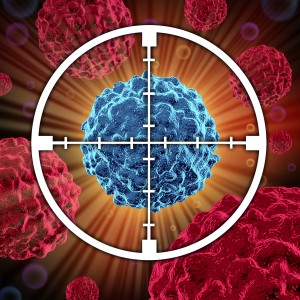 Researchers at Stanford University and Stanford University School of Medicine recently published in the journal Genome Medicine findings revealing that the gene PIK3CA, which has been associated with breast cancer and been used as a target in cancer drug development, might not be as promising as initially thought. The study is entitled “Cell-lineage heterogeneity and driver mutation recurrence in pre-invasive breast neoplasia.”
Researchers at Stanford University and Stanford University School of Medicine recently published in the journal Genome Medicine findings revealing that the gene PIK3CA, which has been associated with breast cancer and been used as a target in cancer drug development, might not be as promising as initially thought. The study is entitled “Cell-lineage heterogeneity and driver mutation recurrence in pre-invasive breast neoplasia.”
Approximately 20% of all breast cancers exhibit mutations in a gene called PIK3CA, accounting for the second most frequent gene mutation found in breast cancer. However, mutations in PIK3CA have also been reported in neoplastic lesions, pre-cancerous growths considered benign (not considered tumors), and those that have not invaded the neighboring tissue.
In order to better understand these neoplastic growths and their possible link to breast cancer development, the research team sequenced the genes present in breast tissue from six women who had undergone a mastectomy (partial or complete surgical removal of the breast). A total of 66 samples were analyzed, including 18 carcinomas and 34 neoplastic lesions.
The researchers created phylogenetic trees for each patient to track the mutations back to the original cell in order to establish the phylogenetic relationship between pre-invasive lesions and the invasive carcinoma. The team found that in four out of the six women assessed, a specific mutation in the PIK3CA gene (H1047 mutation) occurs independently multiple times, an observation that had never been made before. In two of the women, this mutation is present in neoplastic lesions but not in the invasive carcinoma.
[adrotate group=”3″]
The research team concluded that PIK3CA mutations might not be responsible for driving cancer development, and that instead, they might actually be benign inducers of cellular proliferation. “There are currently several drugs in development that target PIK3CA, attesting to the fact that many companies and clinicians believe PIK3CA to be a promising target. Our finding that PIK3CA may recur multiple times at various stages of tumor or neoplastic development suggests that it is more of a moving target than one would like,” concluded one of the study’s senior authors Dr. Arend Sidow in a news release.
The team suggests that further studies comprising more patients should be conducted to validate the results and determine whether PIK3CA mutations are ancestrally present in tumor cells, making them a good target, or whether they are present only in a subset of cancer cells, invalidating them as a good target.

